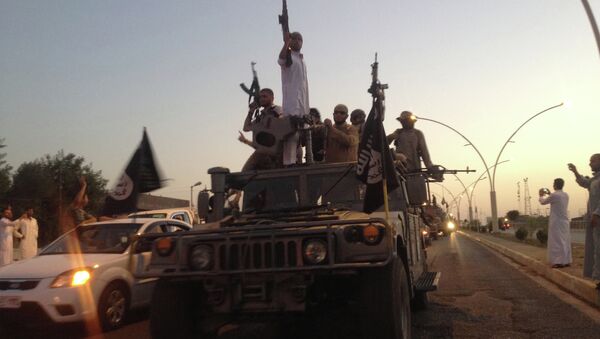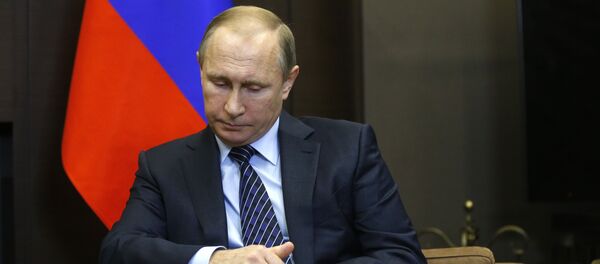Speaking on the subject on Wednesday, Russian Prime Minister Dmitry Medvedev said the incident demonstrated Turkey's intent to protect ISIL. Medvedev singled out "the direct financial interests of several Turkish officials" involved in the delivery of oil products extracted from ISIL-controlled enterprises as the motive for the incident.
Various estimates place oil revenues generated by ISIL somewhere between $40 to $50 million a month. A day prior to the attack, the Russian Defense Ministry said it had destroyed over 1,000 semi-truck tankers carrying crude oil to ISIL refineries, a large oil storage facility and an oil refinery in Syria.
Jihadist Support
"Turkey has been, at least, turning a blind eye to IS [the Islamic State jihadist group] from the beginning," senior King’s College London lecturer Bill Parker said. "But it is clear that Turkey supports many other jihadi groups in Syria."
Parker, the school’s Defense Studies Department expert on Turkish foreign and security policy, classified the jihadist groups backed by Turkey as its "proxy allies."
Pembroke acknowledged that ISIL uses Turkey as a route for smuggling Syrian oil, with the "complicity of Turkish criminal gangs and corrupt officials," but said the likelihood that Ankara sponsors ISIL on a state level is "extremely unlikely."
"The financial rewards involved are far too small and based on personal, not political, interest. Moreover, Turkey has little to gain from a strengthened IS," he said, bringing to mind a series of terrorist attacks carried out by the group in Turkey this summer.
Lost Oil Revenue
The head of the Institute of Political and Military Analysis (IPMA) analysis department, Alexander Khramchikhin, linked the downing of the Russian aircraft to the previous airstrikes on ISIL oil facilities.
"Turkey, I have no doubt, is simply avenging the strikes on fuel trucks. It is well known that it is a general sponsor of the Islamic caliphate, buying its oil at dumping prices," the expert said.
Center for Political Information Director General Alexei Mukhin weighed in on the prospects of Turkey losing revenues from sales of oil smuggled by ISIL due to the Russian airstrikes.
"It is clear that the Russian Aerospace Forces' actions are hindering its development and there is a risk that this 'business' will cease to exist in the near future because of the efficiency of the Russian aviation," Mukhin stressed.
Implications
Li Weijian, executive director of the Shanghai Institute for International Studies’ Institute for Foreign Policy Studies, observed that the incident would force Turkey to "take a clear position in relation to IS."
"And if Turkey will not only refrain from fighting terrorists on its own, but even shoot down planes involved in anti-terrorist operations, the world community’s opinion would not favor Turkey," Li stressed.
Speaking to reporters after a phone conversation with his Turkish counterpart earlier on Wednesday, Russian Foreign Minister Sergei Lavrov called the Su-24 incident a "planned provocation."
Putin described the Turkish attack as a "stab in the back" carried out by "accomplices of terrorists."





